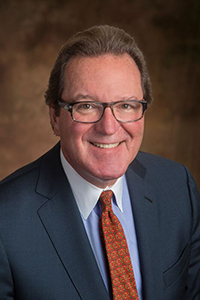by Pierre G. Villere
In one of the scenes in the iconic motion picture Casablanca, Captain Renault attempts to arrest the protagonist, Victor Lazlo, and in one the most famous lines in movie history, Humphrey Bogart’s character Rick Blaine pulls a gun on Renault and utters the famous words “Not so fast, Louie”… .
Throughout my career, I have thought of that phrase thousands of times, as I hear lamentations and shouts of Chicken Little scenarios, and predictions that the world is suffering a tectonic shift, or is even coming to an end. And most of the time, I think “Not so fast, Louie” and I am more often right than wrong.
We have experienced a plague of biblical proportions, and all of us wonder what life and our businesses hold for us when we get to the other side. My first-hand experience with a life-changing event like this came 15 years ago, when my beloved hometown of New Orleans was ravaged by Hurricane Katrina, which completely flooded the city and left an apocalyptic swath of devastation when the flood waters receded. Like the current pandemic, it turned all our lives upside down. Too many predicted the city would never come back, but it did, and for the better. I learned an important lesson during that recovery: We are a resilient society rooted in the work ethic and Yankee ingenuity that makes our country great. This current disaster will also pass, and we will recover.
One of the predictions that has repeatedly come out of the reporting on this pandemic has been the “flight” to the suburbs as urban dwellers rush to escape the crowded conditions in cities across America. This is reflected in a recent report issued by the economics team at the National Association of Homebuilders indicating a clear shift for construction activity to lower-density, lower-cost markets like suburbs and exurbs. However, they were quick to point out this is a shift, not an exodus, as has been reported by so many doomsayers predicting the end of cities.
A trend of higher demand for housing in lower-density areas has grown during the course of the pandemic, as single-family and multifamily construction continued to overperform in lower cost markets like suburbs and exurbs. The suburban shift for consumer home buying preferences is accelerating as telecommuting is providing consumers more flexibility to live further out within large metros, or even to relocate to more affordable, smaller metro areas. For both single-family and multifamily building, the ability of individuals and families to live further from urban cores is empowering consumers to acquire housing with more space—at a lower cost.
What does this mean for cities? Not so fast, Louie. First, as has been widely reported in the business press, Covid-19 will not kill off cities. Both global cities and mid-sized urban centers will not only survive, but will revive, as they did after even deadlier epidemics, economic crises, wars, and natural disasters in the past. Their commercial spaces are being transformed into mixed-use areas where people live and work, because the clustering force of talent and innovation is a core characteristic of this new reset. I think smaller cities and suburbs, as well as rural areas, have the ability to thrive as people flock to them because of their ability to perform jobs remotely.
I predict the obvious: This pandemic, like pandemics through all of human history, is just an accelerator of trends already under way. The exodus from cities that draw certain groups, like families with children, out to the suburbs is offset by the draw that impels others, like the young and the ambitious, techies and artistic creatives, into cities, especially as they become more affordable.
For now, the hot suburban housing market creates volume opportunity for the concrete industry, but don’t give up yet on the opportunities that cities will offer to the next set of urbanites. We will all be surprised by the strength of the urban recovery over the next few years.
Not so fast, Louie … Indeed.

Pierre G. Villere serves as president and senior managing partner of Allen-Villere Partners, an investment banking firm with a national practice in the construction materials industry that specializes in mergers & acquisitions. He has a career spanning almost five decades, and volunteers his time to educating the industry as a regular columnist in publications and through presentations at numerous industry events. Contact Pierre via email at [email protected]. Follow him on Twitter – @allenvillere.